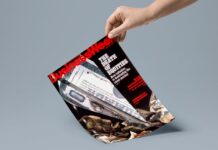Introduction
This report marks the seventh edition of Novare® Investments’ annual survey of the South
African hedge fund industry.
The period covered in this survey stretches from July 2009 to June 2010, with the first six
months (July to December 2009) characterised by a strong recovery in global equity markets
after the 2008 meltdown. However, sovereign debt issues were highlighted during the most
recent six months (January to June 2010) when uncertainty and volatility returned. It has
become apparent that economies globally are not out of the woods yet, and most market
commentators expect the recovery to take place over a much longer time period.
Investors are demanding improved due diligence as regulators globally renew their focus on
legislation aimed at curbing systemic risk. Amidst all of this, investors are still eagerly looking
for alpha, and continue to find such opportunities in the alternatives space at a time when
returns from “traditional” asset classes have become more muted. It seems, therefore, that
we are at an important inflection point for hedge funds globally as the financial sector grapples
with the outcomes of a severe economic downturn, marked by several shocks to the system
including the banking crisis of 2008.
Overview
This report reviews the South African hedge fund industry and considers in which form local
hedge funds are in following the events of the past few years. Local managers face similar
challenges as their global peers, while the upcoming review of local pension fund legislation
dealing with the asset class exposures that South African pension funds are allowed to take,
has been an important topic over the first half of 2010.
Overall, the domestic hedge fund industry still seems to be in good stead, with assets having
been positively impacted during the buoyant equity market rally in the second half of 2009.
More importantly, when equity markets sold off in the first half of 2010, hedge funds managed
to protect capital and helped investor portfolios with hedge fund allocations to weather the
storm.
This survey was conducted by means of a voluntary questionnaire completed by South African
managers managing local hedge funds. Included in this survey are managers running funds
that they themselves classify as “hedge funds” according to their interpretation of the hedge
fund strategy employed. The results are reported on an aggregate basis. Performance figures
are from Novare® Investments’ proprietary research and other publicly available sources.
Only locally domiciled hedge funds not regulated under the Collective Investment Schemes
Control Act were included. Unit trusts were excluded, even though some do use investment
strategies similar to what some hedge funds employ, such as short asset exposure through
the use of derivatives.
This survey takes a snapshot of the South African hedge fund industry as at 30 June 2010.
Based on responses received in prior years, we aim to identify changes in how the hedge
fund industry conducts itself and longer term trends that are unfolding.
We wish to extend our warmest appreciation to all of the hedge fund managers who participated
in this year’s survey. We value your input and ongoing support.
Key Findings
Assets remained stable above the R30 billion mark.
- Some industry consolidation is on the cards but new fund launches continued over the 12 months to June 2010.
- Hedge funds with at least a five year track record manage 49.4% of industry assets.
- Net as well as gross exposure levels increased over the past year as confidence returned to the market, supported by a buoyant equity market in the second half of 2009.
- bull; Segregated or managed accounts continue to grow in popularity, as witnessed by the significant increase in the number of mirror funds and increase in the percentage of assets housed in these structures.
- Average fees charged are lower than previous years.
- The time frame before crystallisation of performance fees has increased.
- More funds report detailed portfolio holdings to investors and on a more regular basis with regular intra-month performance updates (mostly received from independent sources).
To download the Full Survey, you can do so by clicking here. [File Size: 3.18 Mb]



